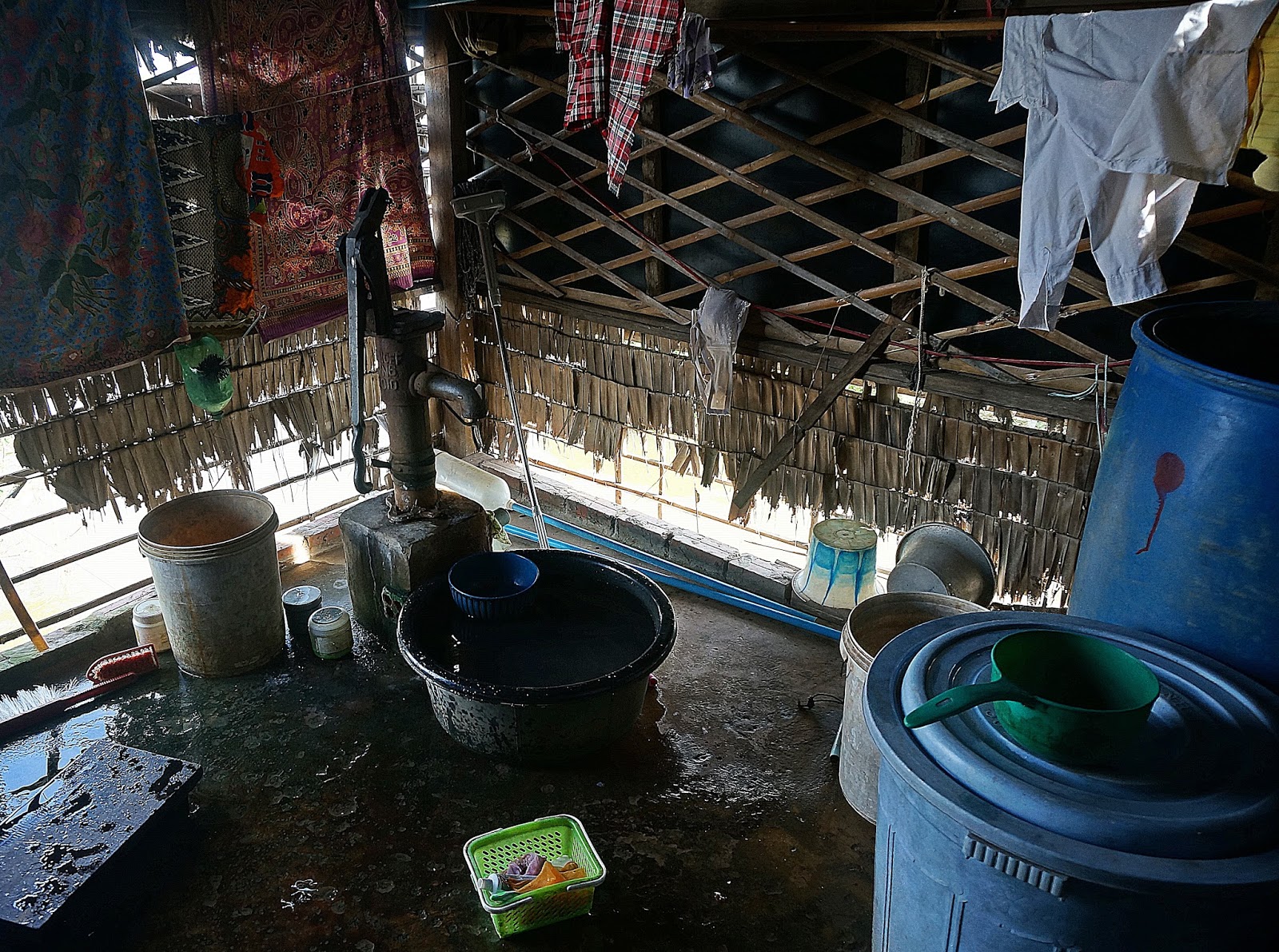(日本語はこちら)
The population of “floating
villages” is officially unknown although some studies shows about 5-10% of the
entire Cambodian population live on or around the Tonle Sap lake. It’s a
fascinating lifestyle. There are mobile houses, chicken coops, crops (people grow
water vegetables), schools, churches, and stores all sprawled across different areas in the lake. There are
multiple communities that live around the lake and in recent years visiting
these villages have become a sort of lucrative tourist business. I do understand i's a good source of
income for the community but it always seemed a bit weird to me to go on a
“tour” of a village like it’s some sort of safari attraction.
Luckily I was blessed that one of the
volunteer teachers’ student, Leak was living on these communes and invited him
over for lunch. Even though I had just met her that day, she generously invited me over as well. Leak’s commune is smaller than the usual ones advertised for
tours and is about a 20 min motorbike ride away from Siem Reap’s city center.
 |
| Now just need to get the other side.. |
 |
| Leak came to pick us up on her boa |
 |
| Colorful houses |
 |
The mom taking some guests back to land
|
Many often associate floating villages
with poverty but what I saw was quite different. Also many often think that the
villagers were forced into living in these inconvenient life styles. This
notion is wrong as well.
Many of the floating village houses have
electricity, either through by electric cables that have been connected through land or
are generator operated.
Floating village houses are usually either floating and tied to an anchor or the building itself is built over water. Leak’s house was
the latter in which the house stood over a concrete manmade island. The bottom
of the house was used as a "garage" for the boats as well as a chicken coop and a
small garden. The inside of her house was spacious with loosely divided areas
for living room/eating space, bed room, and kitchen/bath. They even had two
TVs, two sewing machines, and their own well.
 |
| You can see straight down to the water between the boards..pretty scary! But it's sturdy. |
 |
| "Bedroom" area |
 |
| "Kitchen" area. It's spick and span! |
 |
| "Water" area. They even have their own well |
 |
| The dad was into watching some kind of Khmer talk show. It was cute |
The lunch was traditional Khmer style
which was delectable. Most of the food came straight from the water including the
fish and water vegetables grown on the lake. Chili and a few other vegetables
were made from their small vegetable gardens inside or outside the house.
 |
| homegrown chili |
 |
| fishing net |
 |
| freshly caught water crabs |
What is surprising is that many of the
villagers don’t know how to swim. Some communes require children to swim as a
prerequisite to enter school (in terms of safety since they all have to ride a
boat to get to school) but since Leak’s commune is near the shore, there isn’t
as a big danger.
 |
| Hello neighbors! |
 |
| Thank you for being such wonderful hosts :) |
 |
| Taking a "cruise" around the "neighborhoods" |
 |
| Water grass. It's edible (we had it for lunch) |
 |
Steer from the other parked boats!
|
I asked another student who grew up on a
floating village what it was like compared to living on land. Presumably, I
thought living on land was a better lifestyle for him. But to my surprise he
said that he missed it. He said he used to jump from house to house going over to a
friend’s house. When they were bored, the lake was their biggest playground. Moreover, food was abundant and the community was very close knit. It may not be the most
extravagant life style but he said he definitely felt at home there.























No comments:
Post a Comment